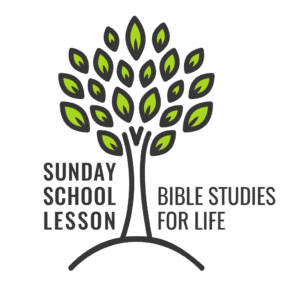Focal Passage: Deuteronomy 8:2-10; Matthew 4:1-14
 We are self-assured, aren’t we? We think we can handle just about anything on our own. Sadly, many Christians think this way. In fact, I would argue that many Christians think that the course of the Christian life goes something like this — I trust Jesus for salvation, but the rest is left up to me.
We are self-assured, aren’t we? We think we can handle just about anything on our own. Sadly, many Christians think this way. In fact, I would argue that many Christians think that the course of the Christian life goes something like this — I trust Jesus for salvation, but the rest is left up to me.
Salvation belongs to God, but we are on our own when it comes to our sanctification. Right? Wrong! The greatest temptation is self-governance apart from the enabling power of God. What are our resources?
Doing good the wrong way (Matthew 4:1-4). When Jesus was tested by Satan, He did not rely on His own power in His incarnate state, but relied on His relationship with God the Father and the Word. The God-Man, Jesus Christ, modeled for us a dependence on His Heavenly Father. Three times Jesus was tempted and three times Jesus answered with the Word of God.
Three temptations and three responses. First, man does not live by bread alone (the material world), but by every Word from God (Matthew 4:4, Deuteronomy 8:3). Second, we do not test God or presume upon the protective power of God; we do not put God to the test (Matthew 4:7, Deuteronomy 6:16). Third, we don’t gain the world by worshiping the world, but we worship God alone (Matthew 4:10, Deuteronomy 4:6:13).
Doing what is right and good apart from God’s power can actually become sinful. For example, a person could build a hospital (which is good), which can also be sinful because it wasn’t done out of faith in God. This is why Romans 14:23 notes that “For whatever does not proceed from faith is sin.” Faith in God is an expression of our dependence on God.
Trusting God’s provisions in temptation (Deuteronomy 8:2-5). The good news is that God provides for us every resource we need in order to overcome temptation. When God led His people through the wilderness in their “exodus” from Egypt He did so in order to see if they would keep His commandments (v. 2). Tempted to trust in their own resources, God demonstrated His faithfulness to His people by providing every need they had on their way to the Promised Land.
Further, when God’s people were hungry in the wilderness, He provided daily quail and manna for them (v. 3). In spiritual terms, when we hunger for true righteousness and life, God gives us daily bread in the form of His Word. When we hunger and thirst for God, He will satisfy us with every resource we need to navigate the challenges of life (Matthew 5:6). Just as their clothing did not wear out, God sustains us in the wear and tear of life.
Provision and trusting God (Deuteronomy 8:6-10). God has made many declarative promises to us. Just as He promised to bring God’s people into the Promised Land (v. 6), He will bring us into every blessing He desires for us to have with every resource we need. The Promised Land was amazing (vv. 7-9). God’s blessings to us are amazing as well — life, forgiveness, spiritual power, wisdom, opportunities.
The ultimate consequence of recognizing God’s provisions ought to be what is noted in Deuteronomy 8:10, “When you eat and are full, you will bless the Lord your God for the good He has given you.” Depend on God and not on yourself. B&R

